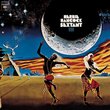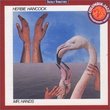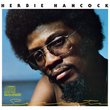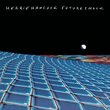| All Artists: Herbie Hancock Title: Sound-System Members Wishing: 1 Total Copies: 0 Label: Columbia/Legacy Euro Release Date: 11/29/1994 Album Type: Import Genres: Dance & Electronic, Jazz, Pop, R&B Styles: Electronica, Jazz Fusion, Modern Postbebop, Funk Number of Discs: 1 SwapaCD Credits: 1 |
Search - Herbie Hancock :: Sound-System
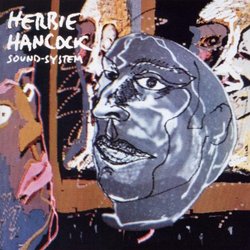 | Herbie Hancock Sound-System Genres: Dance & Electronic, Jazz, Pop, R&B
Out of print in the U.S.! Originally released in 1984, this was the second installment in Herbie Hancock's electronic trilogy (bookended by 1983's Future Shock and 1988's Soundsystem). Seven tracks including a bonus exte... more » |
Larger Image |
CD DetailsSynopsis
Album Description Out of print in the U.S.! Originally released in 1984, this was the second installment in Herbie Hancock's electronic trilogy (bookended by 1983's Future Shock and 1988's Soundsystem). Seven tracks including a bonus extended mix of 'Metal Beat'. Sony. Similar CDs
|
CD ReviewsBrand New Sounds Inspired by the Street DRD | 03/15/2006 (5 out of 5 stars) "Here's one to put the proof in the pudding. Those aware of this album are divided into two camps: those who think it's a rip-off of Future Shock and those who realize FS can't hold a candle to this rock-solid effort. On Future Shock, Hancock couldn't decide if he wanted to commit all the way, resulting in some tepid material. On Sound-System, caution is thrown to the wind, no holds are barred and Herbie goes for broke. (My sentence is full of clichés. The album is not.). Listen to the title track, which is pretty much a bunch of noise pounded into a melody - shards of sound that pierce the doldrums. This is an up-to-the-minute, high-tech sound for its day. Then you've got "Karabali" and "Junku," which mash-up indigenous music and the sounds of the street with reckless abandon - like putting Grandmaster Flash and the Furious Five in a blender with a group of griots. Sure, "Hardrock" is a photocopy of the great, seminal "Rockit," but that sound was so new, it was worth hearing again. "People Are Changing" shifts gears yet again, a towering soul number with vocals that address the struggle for racial equality. A jazz musician in his forties was making some of the freshest, most vital "pop" music of the day, pushing boundaries and toying with the very idea of genres. Far from being scattered, "Sound-System" is darn near cathartic in its energy and willingness to try new things. Herbie wasn't just thumbing his nose at jazz purists - he plainly didn't give a ----. What "Future Shock" hinted at, "Sound-System" hit out of the park." An underappreciated album from Herbie Todd J. Peterson | Washington Depot, CT. | 08/07/2007 (4 out of 5 stars) "Sound System had the misfortune of following the megahit Future Shock (Rockit). Consequently I think that it has taken some undeserved hits from fans and critics. I give Herbie and Bill Laswell credit for throwing some new elements into the mix on this album. OK, Hardrock was supposed to be the next hit, but it is harder-edged and industrial than Rockit. I also really enjoy it. There are some more organic sounds in the mix from Wayne Shorter and Foday Musa Suso - love that kora playing on Junku! This album is a bit uneven in places. Metal Beat is a bit spotty and People Are Changing doesn't quite work for me, although Herbie's piano stands out nonetheless. However Junku is darn near perfect, Hardrock really does rock and Karabali has a good world music mix with piano, sax and African percussion. Sound System mixed elements of industrial and world music before those terms became household expressions. Also the African-style chanting on Karabali predates Paul Simon's Graceland. This isn't a classic in my book, but it holds up well. I picked it up as soon as it was reissued and still enjoy it." The Human Traits Of The Robot Mr. Richard D. Coreno | Berea, Ohio USA | 01/27/2007 (4 out of 5 stars) "Sound-System may not have a monster cut like Rockit, but it demonstrated that the second collaboration between Herbie Hancock and Bill Laswell still had the creative fire to produce unique musical pieces.
Hancock was awarded a second consective Grammy Award for Best R&B Performance for this 1984 Rockit band release. Hardrock and Metal Beat continues Hancock's search in stretching the fusion dynamic & either cut could have easily been included in a Miles Davis studio session during the 1980s. But its the next three selections - Karabali, Junku and People are Changing - that shows Hancock at his creative peak with the band. Wayne Shorter guests on the lyricon for Karabali, Junku was written for the 1984 Winter Games of Sarajevo and People are Changing most definitely was inspired by the great Curtis Mayfield. The title track brings the CD to a wonderfully-textured conclusion. With Sound-System, Hancock proved that gadgets alone don't make the music; there remains the human element to bring life to the sounds. " |

 Track Listings (7) - Disc #1
Track Listings (7) - Disc #1